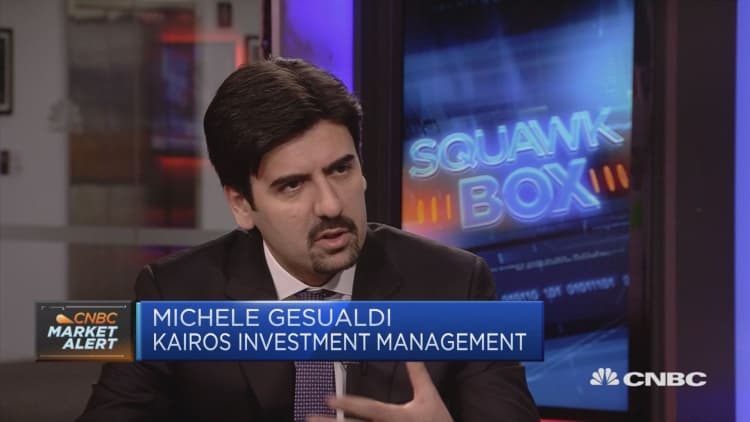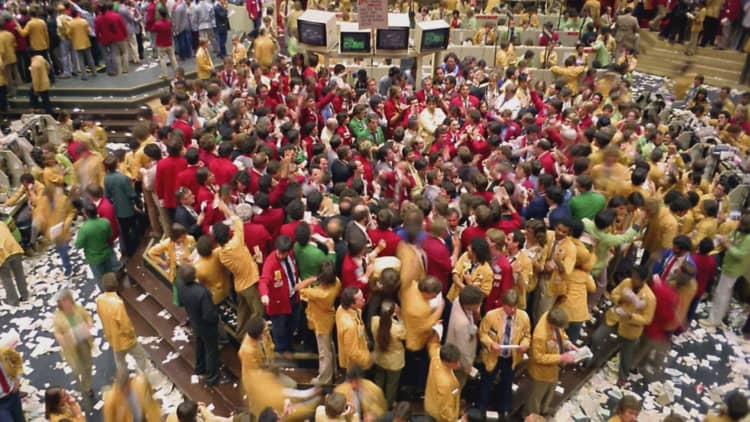The dramatic stock market sell-off earlier this week should be viewed as a turning point, according to analysts.
"Our ongoing concerns about the recovery's tenure have been thrown into sharper focus by the steepest market sell-off since the credit crunch," Eoin Murray, head of investment at Hermes Investment Management, said in a research note published Thursday.
On Monday, the Dow dropped 1,175.21 points, having briefly declined more than 1,500 points during the session. And while U.S. stocks have since pared some of the losses sustained during a cascading market plunge earlier this week, the Dow, S&P 500 and Nasdaq are all down more than 4 percent since Friday.
The market has generally been moving higher for about nine years, the second oldest bull market on record without at least a 20 percent drop in the S&P. During that time, indexes have gained around 300 percent, not including dividends.
Nonetheless, over the past year, the record bull run has been viewed with skepticism by many market watchers, who have frequently warned against historically overvalued stock prices. The main drivers of so-called inflated asset prices are thought, in part, to stem from synchronized global growth, unhinged exuberance among traders and prolonged stimulus from central banks.
"Central bank tightening, or at least the end of post-crisis monetary accommodation, will undoubtedly prove challenging," Murray said.
'Big change' in terms of monetary policy awaits
Analysts cited heightened expectations of higher U.S. interest rates as a catalyst for Monday's market rout. And the market sell-off appears to have dimmed traders' outlook that the U.S. central bank will raise interest rates as much as it has indicated this year.
Just a few weeks after the market finally had come around to the Federal Reserve's way of thinking that three quarter-point rate hikes would be appropriate this year, the day's trading changed sentiment. Traders on the Fed funds futures market are now indicating a less than 50 percent chance that the central bank will move three times this year.

"The real issue is that we are at an inflection point in capital markets… we are, frankly, in a phase where things are going to change quite significantly because in July we get a big change in terms of the tightening of monetary policy," Michele Gesualdi, chief investment officer at Kairos Investment Management, told CNBC on Wednesday.
Gesualdi argued that while there was a "very strong" correlation between quantitative easing (QE) and asset prices rising across the board, an expected move to quantitative tightening in the summer would likely trigger increased market volatility.
And while the recent market sell-off was described as the "first bump in the road," Gesualdi warned that a "big bear market" was on the horizon.
— CNBC's Jeff Cox and Matthew J. Belvedere contributed to this report.
WATCH: Five strategies you should use to protect your portfolio



